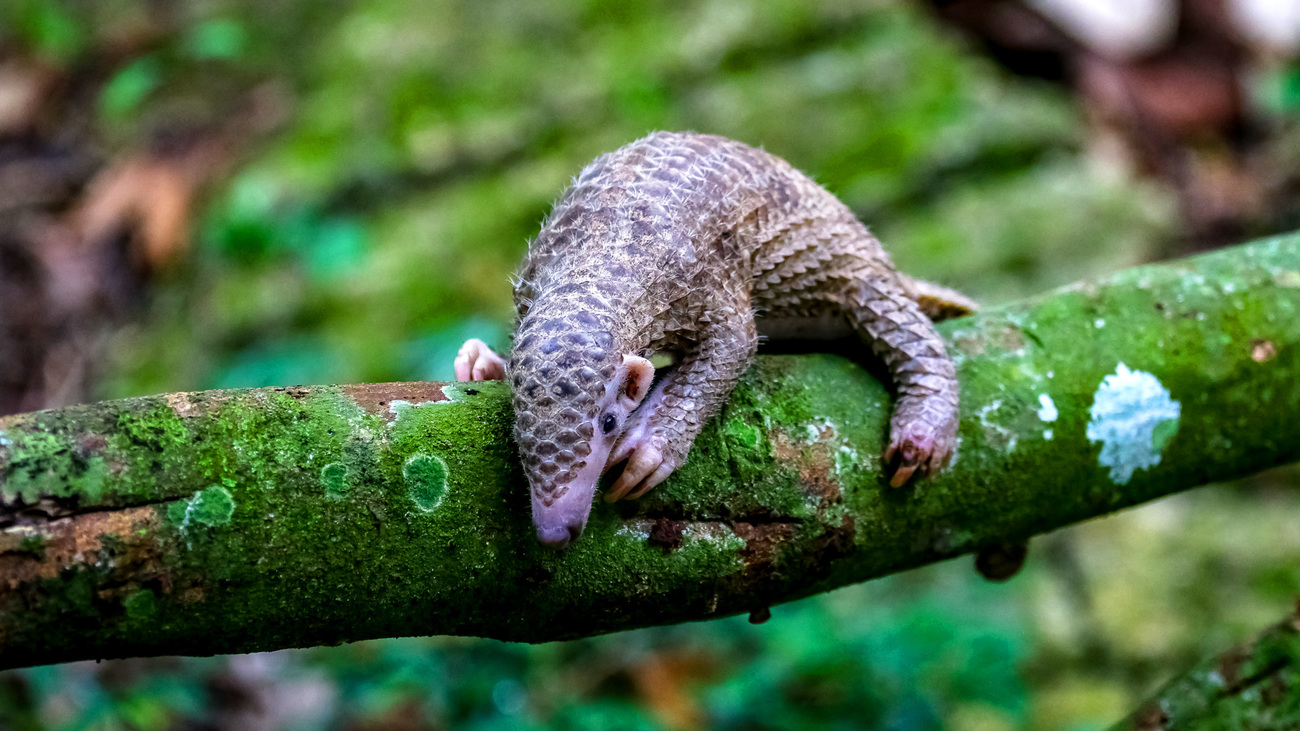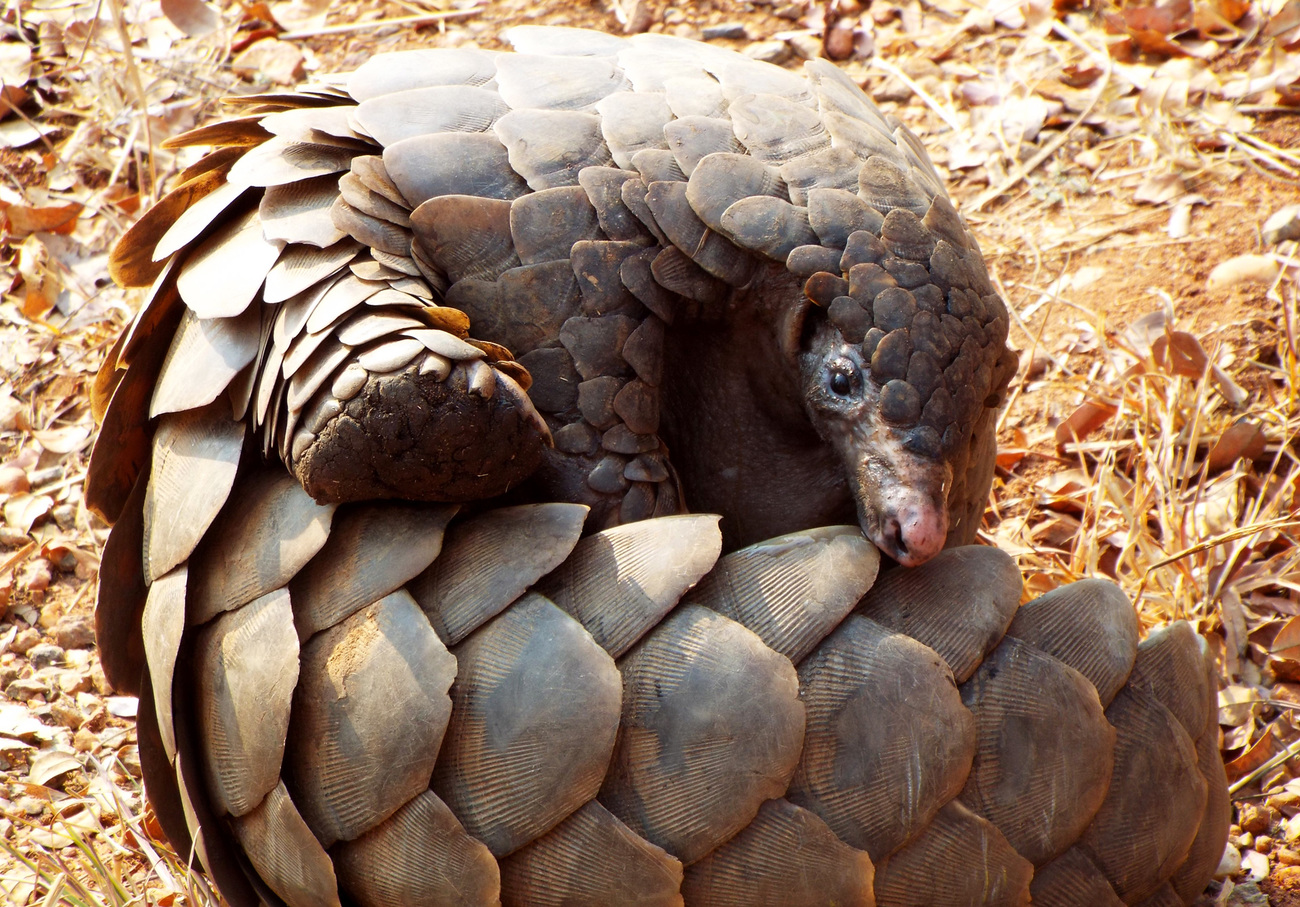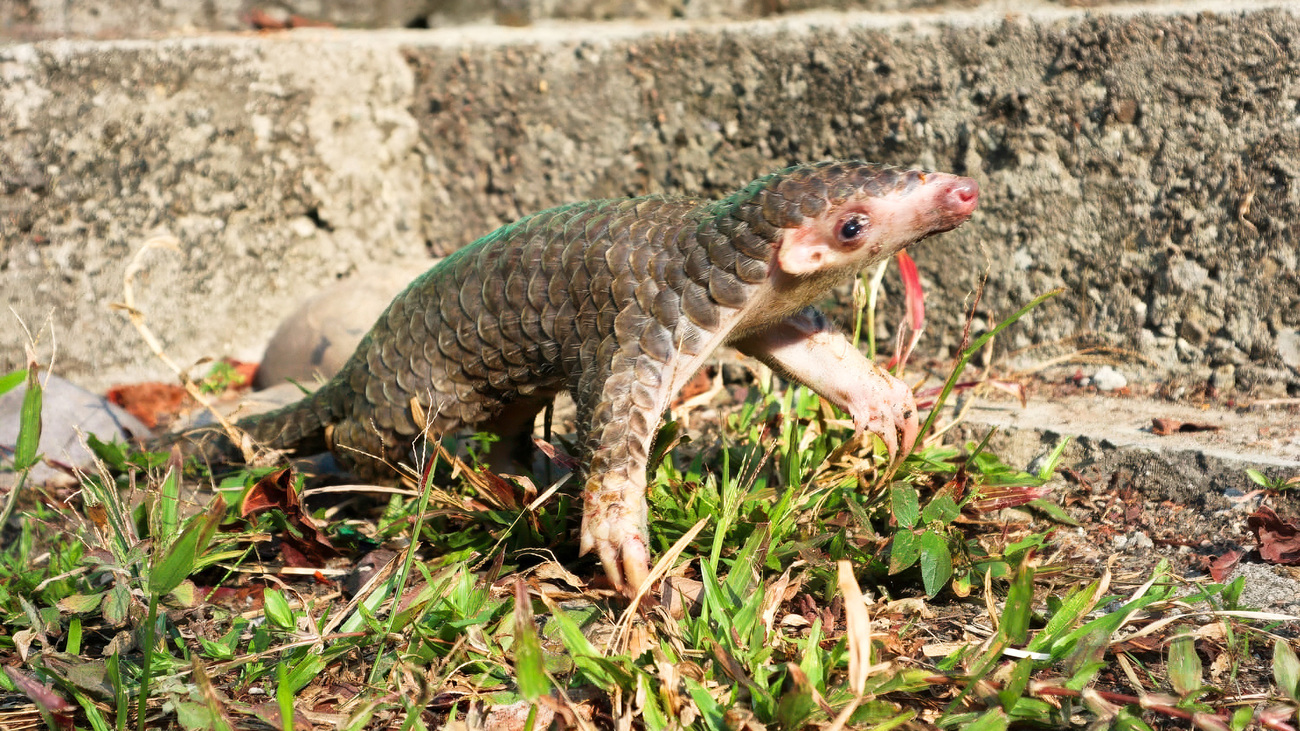Disrupting Wildlife Cybercrime – Global
Wildlife crime is a matter of supply and demandWorld pangolin day 2025: saving the world’s most trafficked mammal
World pangolin day 2025: saving the world’s most trafficked mammal
One of the most unique mammals in the world is still threatened by large-scale illegal hunting and trade. On World Pangolin Day, celebrated on the third Saturday every February, we show our appreciation for these small, scaly members of our planet’s ecosystems, and we also commit to protecting them.

Pangolins have become a highly prized commodity, illegally trapped, killed, and trafficked by organised crime networks between countries and continents. In 2021 alone, 23.5 tonnes of pangolins and their body parts were trafficked. In just ten years, it’s estimated that 1,000,000 pangolins have been poached. These pangolins are often destined for the traditional medicine market in Asia or bushmeat markets in Central and West Africa.
The ecological importance of pangolins
The taking of pangolins from their wild homes poses a serious threat to biodiversity and the health of their habitats. As the pangolin diet consists of ants, termites, crickets, flies, and other insect species, these animals help prevent the overpopulation of insects and protect forests from termite destruction.
It’s estimated that just one pangolin consumes about 70 million ants and termites per year—when you think about the illegal trade of pangolins, imagine the hundreds of millions of extra bugs crawling around. There’s an economic impact, too—it’s estimated that pangolins save us millions of dollars per year by preventing damage from pests.
Pangolins also benefit the soil in which they burrow. By digging holes in the ground, they support the turnover of organic matter and aeration.

Zoonotic disease and the illegal wildlife trade
Reducing the illegal wildlife trade will not only protect pangolins; it will also help protect people. Repeated and sustained close contact with wild animals, likely facilitated by wildlife trade, is a huge risk factor for zoonotic diseases spreading to humans.
COVID-19 has shone a spotlight on the perils of large-scale wildlife trade and the link to human health. People are in constant contact with wild animals, and those wild animals are often held in cramped, stressful, and unsanitary spaces. IFAW’S report ‘Beyond COVID-19’ documents research showing that human diseases that originated from animals (zoonotic diseases) have increased over time, with wildlife trade a likely contributing factor.
China decreases pangolin scales quota
This year, China announced an annual quota of one metric tonne of pangolin scales for medicinal use. While this is significantly lower than past quotas, this is not enough to protect these vulnerable animals, and the fact that China will continue to import pangolin scales can potentially fuel illegal activity.
China is one of the world’s largest consumers of pangolin products, so pangolins’ survival hinges on rulings like these. One metric tonne of pangolin scales means the killing of about 2,000 pangolins.
There is already a lot of uncertainty surrounding pangolin scale stockpiles in China, so the continued import of pangolin parts—and loopholes in China’s Wildlife Protection Law—carries significant risks. Ultimately, the trade in pangolins and their parts must stop altogether.
Ending illegal wildlife trade through collaborative effort
IFAW works with governments, scientists, and other conservation organisations to save pangolins and end this poaching crisis.
From November to December 2024, nearly 20,000 live animals were seized and 365 suspects were arrested in a huge global operation against wildlife and forestry trafficking. This included the seizure of 12 live pangolins. The operation also found 4,472 kilogrammes of pangolin scales in Nigeria.
IFAW’s partner Wildlife Trust of India (WTI) recently rescued an orphaned Chinese pangolin. His mother is suspected to have been illegally hunted. This one-month-old pangopup was found with severe injuries, and he began his recovery at IFAW–WTI’s Centre for Bear Rehabilitation and Conservation (CBRC).

In good news, our friends at Jakarta Animal Aid Network celebrated the successful release of a pangolin who had been confiscated from illegal trade. Because this pangolin had not been out of the wild for much time, her rehabilitation did not take long. She was released into a protected forest reserve in Sumatra, Indonesia, and the trafficker was sentenced in court. A China–Vietnam cross-border law enforcement workshop supported by IFAW in 2018 motivated Vietnam Customs enforcers, resulting in three large seizures of illegally traded wildlife products within one month. This included a seizure of ivory (193 kilograms) and pangolin scales (805 kilograms) in Hanoi, a seizure of two tonnes of ivory and six tonnes of scales in a container from Nigeria, and another seizure in Hanoi of rhino horn (34 kilograms). In 2019, another workshop resulted in the seizure of 7.5 tonnes of ivory and pangolin scales at Hai Phong port, Vietnam.
In 2016, IFAW led a group of conservation experts to bring attention to the need for greater protections for pangolins. As a result of our joint effort, CITES changed the listing of all eight pangolin species from Appendix II to Appendix I, prohibiting the commercial trade of pangolins and their parts.
We also work with internet companies to stop illegal wildlife trade from occurring online. In 2018, IFAW, WWF, and TRAFFIC jointly convened the Coalition to End Wildlife Trafficking Online, which in six years has resulted in over 24.1 million prohibited wildlife listings and suspected illicit sellers being blocked or removed from websites.
Related content
Every problem has a solution, every solution needs support.
The problems we face are urgent, complicated and resistant to change. Real solutions demand creativity, hard work and involvement from people like you.